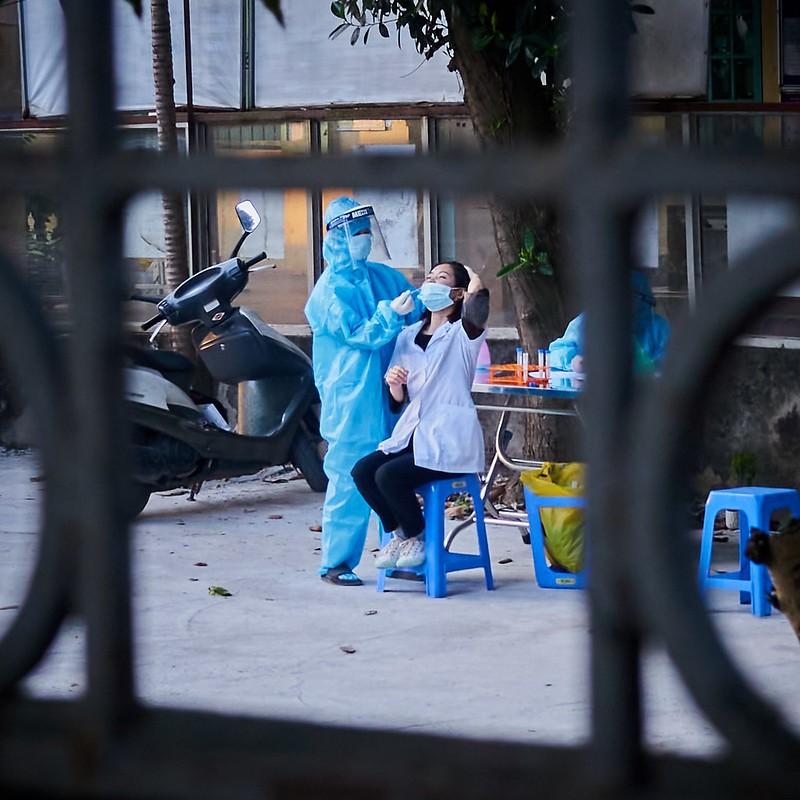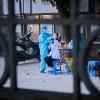The International Monetary Fund (IMF) and three global health partners today proposed a strategy to manage future risk from COVID, factoring in different scenarios on how the pandemic could evolve and setting ambitious price tags that would enable key policies to take shape.
Bracing for an uncertain COVID future
At a briefing today, the IMF and officials from the three groups unveiled the new strategy and its funding goals. The other groups are the Wellcome Trust, the Coalition for Epidemic Preparedness Innovations (CEPI) and the Global Fund.
The strategy, spelled out in a 26-page report, was posted today on the IMF's website.
Gita Gopinath, the IMF's first deputy managing director, said though it's uncertain how the pandemic will unfold, it's clear that the virus will be a long-term problem. "And given the limited resources countries have, we need a new strategy," she said, adding that countries need more comprehensive tools for battling COVID, including tests, vaccines, and treatments, as well as stronger health systems that are better positioned to battle the virus and a number of other diseases.
She said health security is strongly tied to economic security, adding that the IMF's latest estimate in January put the cumulative global loss from the pandemic at $13.8 trillion.
Given the lingering drag on the economy, Gopinath said the groups are calling for $15 billion in grants this year to fund the strategy, along with $11 billion per year after that to keep the plans going.
Richard Hatchett, MD, CEPI's executive director, said the investments in pandemic preparedness is substantial. "But failure to invest now—and build on the gains made in the response to COVID-19—will result in human and economic costs that will reverberate for generations," he added."
And Jeremy Farrar, MD, PhD, Wellcome Trust's executive director, said longer-term goals include developing next-generation vaccines that can block transmission and won't require boosters, strengthening genomic surveillance, and enhancing equitable access to COVID-19 tests, treatments, and vaccines. "Leaving any countries unprotected puts us all at risk," he said.
Today's announcement dovetails with other recent high-level efforts to make the world better prepared for pandemic threats. At a Global Pandemic Preparedness Summit in March, the global community pledged $1.5 billion to help CEPI jump-start a 5-year $3.5 billion plan to prepare next-generation vaccines against future pandemic threats.
Stubbornly high cases in Asian hot spots
The pandemic, meanwhile, continues to challenge nations in different ways.
China's surge continues, with the country reporting 16,412 new cases, of which 15,239 were asymptomatic. Most of the symptomatic cases continue to be reported from Jilin province, where two major cities—Jilin City and Changchung—continue to confirm most of China's symptomatic cases.
However, Shanghai today reported 13,086 asymptotic cases, which made up about 86% of the country's total.
Aggressive mass testing is under way in Shanghai, home to 26 million people, to detect and tamp down transmission chains involving the more transmissible Omicron variant.
City officials today extended the lockdown for the whole city, which was due to partly expire today, according to Reuters. City officials are holding firm with their measures, despite outcry from the public, especially over quarantine policies.
Elsewhere, though South Korea's surge appears to be past its peak, cases are still high, with more than 260,000 new infections reported today, according to the Yonhap News, which said the number of critically ill patients has been stable over the past 4 days and that hospital levels remain manageable.






















